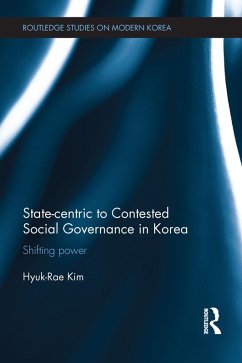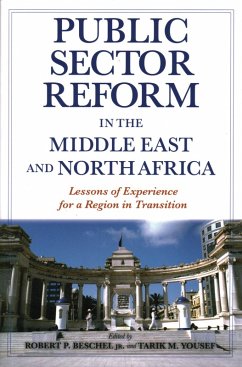
Contested Politics in Tunisia (eBook, ePUB)
Civil Society in a Post-Authoritarian State
Versandkostenfrei!
Sofort per Download lieferbar
16,95 €
inkl. MwSt.
Weitere Ausgaben:

PAYBACK Punkte
8 °P sammeln!
Several thousand new civil society organisations were legally established in Tunisia following the 2010-11 uprising that forced the long-serving dictator, Zine al-Abidine Ben Ali, from office. These organisations had different visions for a new Tunisia, and divisive issues such as the status of women, homosexuality, and human rights became highly contested. For some actors, the transition from authoritarian rule allowed them to have a strong voice that was previously muted under the former regimes. For others, the conflicts that emerged between the different groups brought new repressions and ...
Several thousand new civil society organisations were legally established in Tunisia following the 2010-11 uprising that forced the long-serving dictator, Zine al-Abidine Ben Ali, from office. These organisations had different visions for a new Tunisia, and divisive issues such as the status of women, homosexuality, and human rights became highly contested. For some actors, the transition from authoritarian rule allowed them to have a strong voice that was previously muted under the former regimes. For others, the conflicts that emerged between the different groups brought new repressions and exclusions - this time not from the regime, but from 'civil society'. Vulnerable populations and the organisations working with them soon found themselves operating on uncertain terrain, where providing support to marginalised and routinely criminalised communities brought unexpected challenges. Here, Edwige Fortier explores this remarkable period of transformation and the effects of opening up public space in this way.
Dieser Download kann aus rechtlichen Gründen nur mit Rechnungsadresse in A, B, BG, CY, CZ, D, DK, EW, E, FIN, F, GR, HR, H, IRL, I, LT, L, LR, M, NL, PL, P, R, S, SLO, SK ausgeliefert werden.













